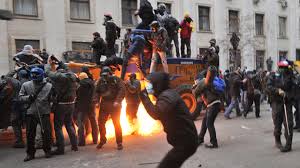While many 19th century authors focused on works of fiction, others began to move away from it, and instead focus on realism. Specifically, realism (also called local color) is a literary technique devoted to the accurate representation of reality, as well as a movement against romanticism (fictional writing related to certain countries, and their way of life). Many realist writers chose to focus more on small town characters, and less on those well documented in history, in order to make the characters more relatable to the everyday reader. Some of the most well known realist writers, are F. Scott Fitzgerald(The Great Gatsby), J.D. Salinger(Franny and Zooey), Ernest Hemingway (The Old Man and the Sea), and Mary Wilkins Freeman ( “The Revolt of ‘Mother’”); who were later known as the lost generation. Freeman’s stories analyse the challenges many women faced when they rebelled against a long standing sexist society, by becoming more independently willed and less submissive to men.
Mary Wilkins Freeman was born October 31st in Randolph, MA. Throughout high school and college, she attended female seminaries, which greatly influenced her writing on woman. Her establishment as a writer came in the late 1980’s, when she published a collection of short stories; from which “The Revolt of ‘Mother’” was taken. Throughout her stories, Freeman emphasizes the roles of isolated woman living in New England, who constantly dealt with the sexism related to industrial society. Freeman also felt that while her stories were based current women of her time, they would quickly seem more so like events of the past rather than current life, due to the rapid evolution of the industry, and the everchanging roles of woman. This change would inevitably affect her writing, as woman on the East coast were subject to change sooner than others, due to their relative closeness to Europe; specifically in England, where Western style and culture was developing rapidly, and influencing other nations via cultural diffusion.
In Freeman’s short story “The Revolt of ‘Mother’”, Freeman analysis how the industry is rapidly changing small town characters; who are inspired to fight against gender roles in their society. Respectively, Sarah (mother), having played the role of a good mother and housewife for over 50 years, decides to take matters in her own hands when her husband tries to build a barn instead of a house on the only empty plot of land. To worsen matters, the people in her community are largely unsupportive of her plan, as they have come to rely on traditional gender roles; not those of the modern woman. Nevertheless, Sarah is successful, to the point that her husband apologies to her, and promises to do what she wants henceforward. This gesture may not seem very important now, but in that time was a big deal because it made man (who was supposed to be the stronger sex; masculine, fearless, and support the family), look weaker than females, who were seen as the weaker sex ( expected to birth children, take care of the house, agree blindly with her husband, support her husband, and do the laundry as well as cooking)
Despite the many popular fictional 19th century authors, a growing clan of writers began to develop their works based on realism; a technique used to portray the realities of life mostly using small town characters. Among these, was Mary Wilkins Freeman; whose writing reflected the lives of New England woman, and their rebellion of traditional gender roles in an industrial society. As a result, many women (such as Sarah from “The Revolt of ‘Mother’”) were inspired to, and successful in carrying out their own ambitions against the will of men.











